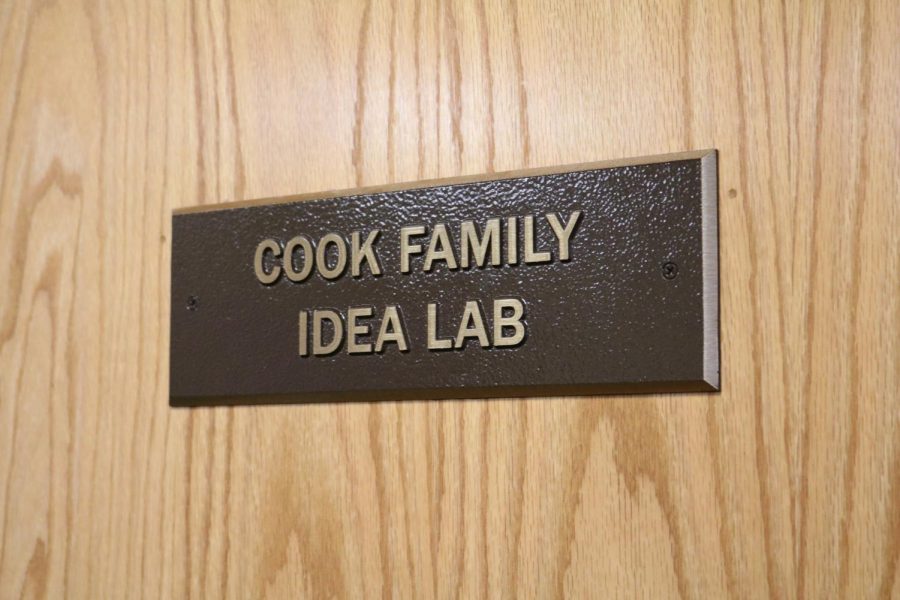Ideas drive campus entrepreneurs
The Cook Family Idea Lab, in 132 Biddle Hall, is a room with ample whiteboard space for students to develop their ideas.
November 15, 2017
Local entrepreneurs and those with start-up ideas don’t need to look far for programs and events to help them get the ball rolling.
Pitt-Johnstown offers a variety of options with the help of business owners.
Somerset Trust CEO Henry Cook committed one million dollars to Pitt-Johnstown’s entrepreneurship minor in 2015, to be spent over 10 years.
In an Aug. 1 interview Cook said entrepreneurs are a driving force in Somerset County’s economy, and Pitt-Johnstown is one of the primary educators of the county’s next generation of working people in an Aug. 1 interview.
“Entrepreneurs are the people who take the risks, who come out with ideas that drive businesses and drive wages,” Cook said, noting the need for more rising area entrepreneurs.
“In the end, it’s about the students; it’s about inspiring a new generation to create economic excitement,” Cook said. “We have to look for the next big thing.”
An entrepreneurship minor was approved in 2016.
“Prior to that, we taught a class a semester. We also organized shark tank events,” interim Business and Enterprise Division chair Ray Wrabley said.
Wrabley said the entrepreneurship courses have generated student interest.
Classes are capped at 15 students, but they are either full or mostly full classes from the start.
“Very quickly, I realized that there are students who are making things with commercial potential. I reached out to engineering and other faculty,” Wrabley said in a July interview, calling the program wholly interdisciplinary.
Wrabley said these classes are taught mostly by marketing assistant professor Skip Glenn.
Those seeking the minor must complete three relevant courses, either business-based or design or development courses.
There are also three core classes: Entrepreneur’s Idea Lab, Entrepreneur’s Toolkit and Entrepreneur’s Boot Camp.
The boot camp requires students to take up a 150-hour internship with a working entrepreneur. Glenn said last week he has identified interested local business owners, and is attempting to expand the list with some from Pittsburgh.
“Every year, I am amazed what students bring to the table,” said Glenn.
“Most ideas address some personal need or passion which provides intimate understanding of the problem, solution and product market fit.”
Classes are held in what has been named the Cook Family Idea Lab, a classroom with nearly floor-to-ceiling whiteboard space, plus several writeable tables for students to use to describe, develop and demonstrate ideas.
Glenn said that the Idea Lab is outfitted with a 3D printer.
Some students use Autodesk applications to create and print minimum viable models of their products.
A $7,000 grant from the Community Foundation for the Alleghenies helped administrators purchase lab furniture several years ago, Glenn said, and more aid has trickled in since then.
The division also hosts PITTch Fests and Shark Tank events, allowing students to win funding and support for their ideas.
“Sharks are for-profit capitalists,” Glenn said: entrepreneurs who are interested in ideas with monetary returns. “We also want to promote social entrepreneurship, which may not generate profit but is essential to growth in the community.”



